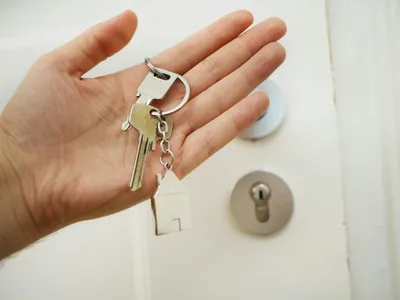As a seller, getting multiple offers on your home is a fantastic scenario. It’s a sign that your property is in demand, and you’re in a strong position to negotiate. However, it can also be a bit overwhelming. How do you choose the best offer? Should you go for the highest price? Here’s how to navigate this exciting situation.
1. Evaluate All Offers Thoroughly
The highest offer isn’t always the best one. There are many factors to consider:
- Price: Naturally, the offer price is important, but it’s not the only factor.<
- Financing: Is the buyer pre-approved for a mortgage? Or is it a cash offer? How much is the buyer putting down for a down payment? The less money down sometimes can lead to a less stable offer. Cash offers can close faster and with fewer complications.
- Contingencies: Does the offer include contingencies, such as the buyer needing to sell their current home first? Fewer contingencies typically mean a smoother transaction, but remember, financing is considered a contingency even if there isn’t a house to sell. An offer with a finance contingency requires the buyer to clear to close on a loan prior to closing. If that doesn’t happen, the contract can be cancelled at the last minute.
- Closing Date: Does the buyer’s preferred closing date align with your timeline? Flexibility here could be valuable, make sure you communicate with your realtor about your preference on closing date.
2. Communicate with All Potential Buyers?
If you receive multiple offers, you might want to inform all interested parties. This is one strategy sellers consider, but it’s not always the best option. This could lead to a bidding war, driving up the price, however, this strategy can be risky—it could backfire if buyers feel pressured and decide to not submit or withdraw their offer. Discuss the pros and cons with your realtor before proceeding.
Do sellers have to call for best and final and set a deadline?
A seller is not required to call best and final for multiple offers The other option is to simply negotiate with just one offer. Either work with one, or all of the offers. In other words, if you decide to call best and final, it needs to be communicated with ALL parties involved, not just a few parties.

Weigh Your Options: The Pros and Cons
Each offer will have its strengths and weaknesses. For instance, a slightly lower offer from a buyer with no contingencies (cash or waiving financing) might be more appealing than a higher offer with several conditions. It’s crucial to balance your financial goals with the practicalities of the sale.
Trust Your Realtor’s Expertise
Your realtor has experience navigating multiple offers and can provide invaluable guidance. They’ll help you analyze your options, discuss whether or not to announce multiple offers and set a deadline, consider potential risks, and decide on the best course of action. Rely on their expertise to ensure you make an informed decision.
Make a Decision and Move Forward
Once you’ve evaluated all the offers and chosen the one that best meets your needs, it’s time to move forward. Accept the offer, and your realtor will guide you through the next steps to close the sale.
Final Thoughts
Receiving multiple offers is an exciting opportunity, but it requires careful consideration. By evaluating each offer thoroughly, communicating effectively, and relying on your realtor’s expertise, you can confidently choose the best path forward. Remember, the goal is to find the right balance between price, terms, and a smooth transaction process, which may or may not in include setting a deadline for best and final offer. The other option is to negotiate with just one offer, and not call for a multiple offer deadline.



